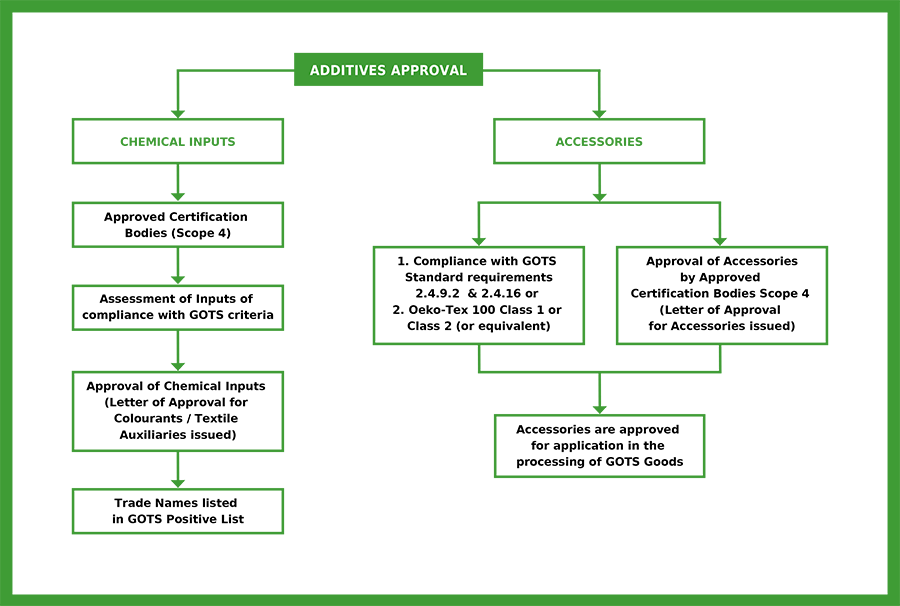On-site inspection and certification of processors, manufacturers and traders is performed by independent third-party GOTS accredited Certification Bodies (CBs) and forms the basis of the GOTS monitoring system.
Auditing is an essential component of the third-party certification process, ensuring that textile products bearing the GOTS label maintain the reliability and integrity in alignment with stringent yet practical environmental and social criteria, thus advancing the organic production process.
Audits provide an independent assessment of operations of certified entities, validating their adherence to GOTS’ standards. This process emphasises the transparent and traceable processing of organic textiles from the field to the final product. It ensures that every stage, from unprocessed materials to finished goods in the supply chain complies with the GOTS environmental and social criteria.
Annual and unannounced audits are planned by GOTS-approved CBs for certified entities.
GOTS provides resources, updates, guidelines, and support to certified entities and businesses interested in getting certified to prepare effectively, so the journey towards GOTS certification or recertification is efficient and smooth. You can find here, the document that specifies the approval and monitoring procedures that sets out the requirements for Certification Bodies to GOTS.
Generally, a company participating in the GOTS certification scheme needs to work in compliance with all the criteria of the standard. CBs must adhere to a set protocol to facilitate non-discriminatory and objective audits. The on-site audit shall, at the very minimum, encompass the following with respect to certified entities.
a) Assessment of the processing system by means of visits to processing and storage units (which may also include visits to non-certified areas if there is a reason for doing so).
b) Review of records and accounts in order to verify the flow of goods (input/output volume reconciliation and traceability). Traceability checks and volume reconciliation checks shall include as applicable, transport documents, and financial records.
c) Review of records related to input materials used in GOTS production. Such checks shall include, as applicable, transaction certificates, invoice and delivery documents, transport documents and financial records.
d) Identification of areas of risk to product integrity;
e) Audit of the wastewater, effluent treatment plant, if any (pre-)treatment system of wet processors;
f) Verification of the operator’s risk assessment of contamination and residue testing policy including sample drawing for residue testing either as random sampling or in case of suspicion of contamination or non-compliance;
g) Verification of adherence to the social criteria. In particular, the audit protocol shall include:
- Audit of processing and storage units, toilets rest areas and other sites of the company with access for workers
- Interview with management and confidential interviews with workers and worker representatives
- Review of personnel files, such as a list of workers employed, workers’ contracts, payrolls, shift and working time protocols, age verification, social insurance documents.
h) Verification that changes to the standards and related requirements have been effectively implemented; and
i) Verification that corrective actions have been taken.


